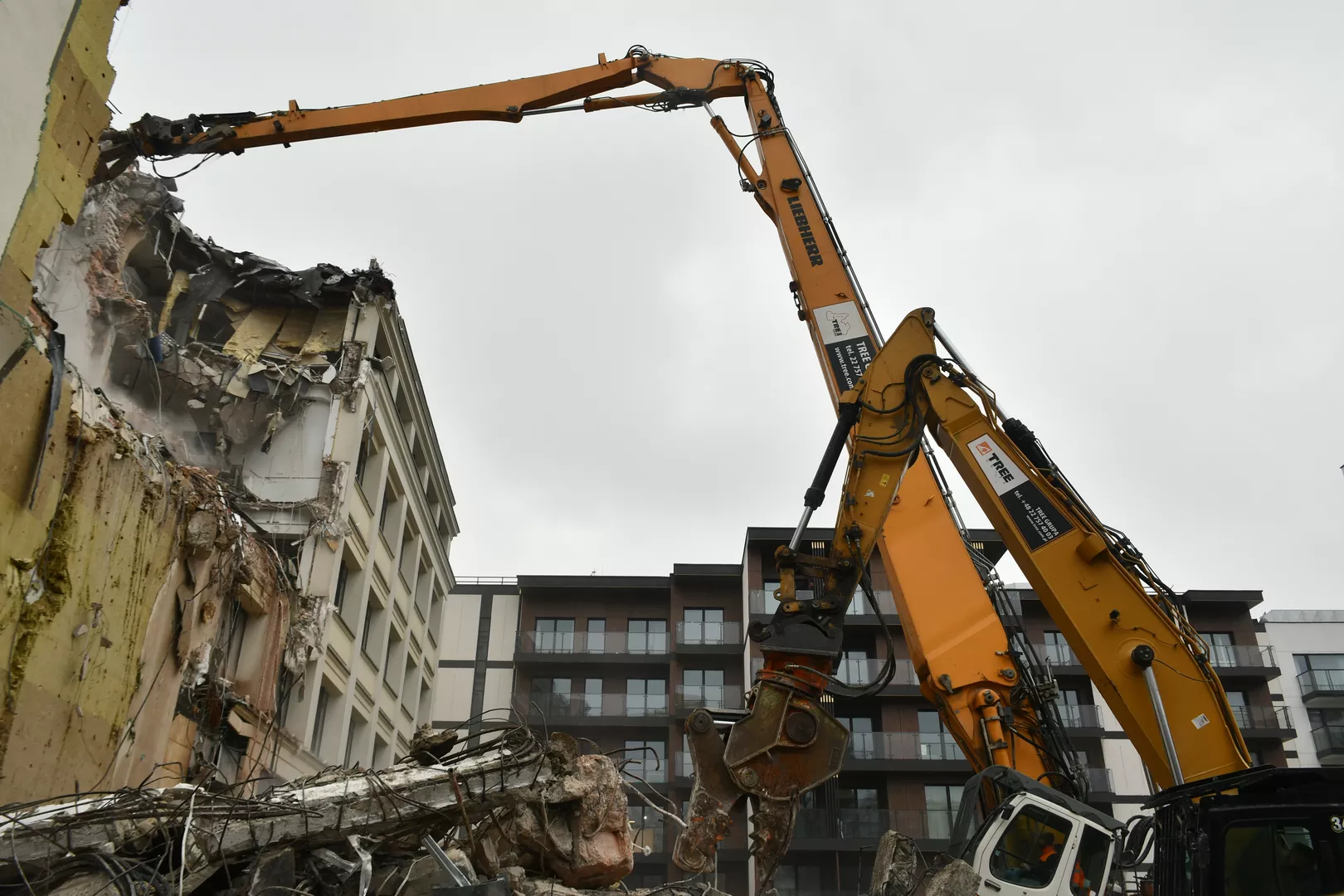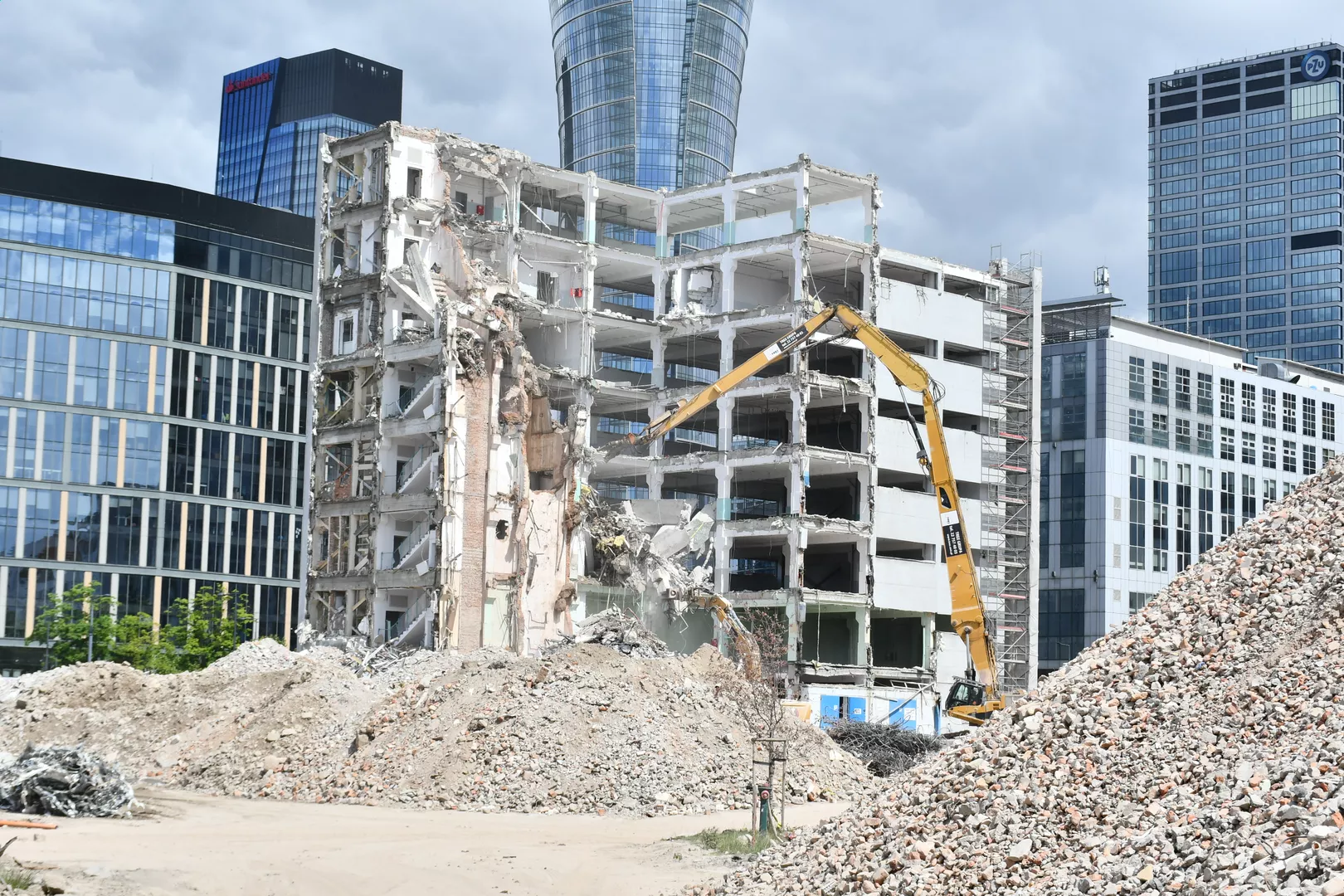
Legal Documentation and Demolition Permits - Complete Guide 2025
Complete guide to legal procedures and documentation required for demolition permits in 2025. Learn current requirements, deadlines, and costs associated with legalizing demolition work.
Legal Documentation and Demolition Permits - Complete Guide 2025
Introduction
Planning a demolition project requires detailed knowledge of current legal regulations and administrative procedures. In 2025, new regulations are in effect that significantly impact the process of obtaining demolition permits. This guide presents all necessary steps, documents, and legal requirements.
1. Basic Legal Acts Regulating Demolitions
Construction Law and Executive Regulations
- Act of July 7, 1994 Construction Law (Journal of Laws 2024, item 725)
- Regulation of the Minister of Development and Technology on building permits (Journal of Laws 2024, item 1122)
- Act on spatial planning and development (Journal of Laws 2024, item 584)
Environmental Regulations
- Environmental Protection Act (Journal of Laws 2024, item 1471)
- Waste Act (Journal of Laws 2024, item 300)
- Regulation on construction waste management (Journal of Laws 2024, item 892)
2. Classification of Demolitions and Required Permits
Demolitions Requiring Demolition Permit
- Buildings with floor area exceeding 35 m²
- Objects listed in the heritage register
- Structures and technical installations over 3 m high
- Demolitions in protected zones
Demolition Notification
- Single-family residential buildings up to 35 m² floor area
- Farm buildings up to 25 m² floor area
- Partial demolitions not exceeding 25% of volume
Cases Not Requiring Formalities
- Temporary buildings
- Objects with area up to 10 m² (with exceptions)
- Emergency demolitions (with obligation of subsequent legalization)
3. Documentation Required for Permit
Basic Documents
- Application for demolition permit - official form with complete data
- Site map in scale 1:500 or 1:1000 with marked demolition object
- Documents confirming right to dispose of property:
- Land register extract (not older than 3 months)
- Lease or use agreement
- Expropriation decision
Technical Documentation
Building inventory prepared by authorized designer
Demolition project including:
- Technical description of demolition methods
- Demolition work organization plan
- Protection of adjacent objects
- Waste management procedures
Building technical condition assessment with impact evaluation on neighboring objects
Additional Documents (case-dependent)
Development conditions decision - when lacking local development plan
Heritage conservator consent - for objects in heritage register or inventory
Industry consultations:
- Power company
- Gas company
- Water utility
- Telecommunication company
- District heating operator
Geotechnical opinion - for deep foundation demolition
Environmental impact analysis - in cases specified by law
4. Application Submission Procedure
Step 1: Documentation Preparation
- Commissioning demolition project from authorized designer (60-90 days)
- Obtaining all required consultations (30-45 days)
- Preparing building inventory (14-21 days)
Step 2: Application Submission
- Application submitted to authority competent for location
- Possibility of online submission via ePUAP
- Stamp duty: 380 PLN (2025)
Step 3: Administrative Proceedings
- 65 days - standard application processing time
- 35 days - for demolition in investment impact area
- Possibility of requesting documentation completion (7 days for submission)
Step 4: Decision Issuance
- Demolition permit decision
- Refusal decision (with justification and appeal instruction)
- Silent settlement after deadline expiry
5. Costs of Obtaining Demolition Permit
Official Fees (2025)
- Demolition permit: 380 PLN
- Demolition notification: 60 PLN
- Land register extract: 35 PLN
- Site map: 45-85 PLN
Design Documentation Costs
- Demolition project: 2,500 - 8,000 PLN (depending on complexity)
- Building inventory: 1,500 - 4,000 PLN
- Technical condition assessment: 1,200 - 3,500 PLN
Additional Costs
- Industry consultations: 200 - 500 PLN each
- Heritage conservator consent: 150 PLN
- Environmental impact analysis: 5,000 - 15,000 PLN (if required)
6. Common Mistakes and Prevention Methods
Incomplete Documentation
Problem: Missing key documents or improper project scope Solution: Consultation with experienced designer before application submission
Document Obsolescence
Problem: Expired land register extract or maps Solution: Checking validity dates of all documents before submission
Demolition Project Errors
Problem: Not considering all legal requirements Solution: Cooperation with designer specializing in demolition
Industry Consultation Problems
Problem: Delays in obtaining network operator approvals Solution: Early application for consultations (parallel with project preparation)
7. Special Cases and Exceptions
Immediate Demolition
In case of safety threat, demolition can begin without permit, but:
- Obligation of immediate notification to building supervision authority
- Necessity of permit application within 7 days
- Documentation of emergency state causes
Historic Object Demolition
- Required consent from provincial heritage conservator
- Special requirements for photographic documentation
- Possible necessity of archaeological research
Demolition in Protected Zones
- Consultation with relevant institutions (e.g., airports, military)
- Additional safety requirements
- Possible time limitations for work
8. Control and Permit Enforcement
Investor Obligations
- Starting work within permit-specified time (max. 3 years)
- Maintaining construction diary
- Employing site manager with appropriate qualifications
- Reporting work completion
Official Controls
- Control before work commencement
- Controls during implementation
- Final control and work acceptance
Regulation Violation Consequences
- Financial penalties: 5,000 - 500,000 PLN
- Work stoppage order
- Obligation to restore previous state
- Criminal liability for serious violations
Summary
Obtaining demolition permit in 2025 requires careful documentation preparation and procedure compliance. Key success factors include:
- Early procedure initiation (3-4 months before planned work start)
- Cooperation with experienced specialists
- Thorough verification of all legal requirements
- Systematic case progress tracking at the office
Remember that regulations may change, so it's always worth consulting current legal situation before starting procedures.
Bibliography
- Act of July 7, 1994 Construction Law (consolidated text: Journal of Laws 2024, item 725)
- Regulation of the Minister of Development and Technology of September 15, 2024 on building permits (Journal of Laws 2024, item 1122)
- Act of March 27, 2003 on spatial planning and development (consolidated text: Journal of Laws 2024, item 584)
- Act of April 27, 2001 on environmental protection (consolidated text: Journal of Laws 2024, item 1471)
- Act of December 14, 2012 on waste (consolidated text: Journal of Laws 2024, item 300)
- Regulation of the Minister of Climate and Environment of June 18, 2024 on construction waste management (Journal of Laws 2024, item 892)
- Chief Building Supervision Office, "Guidelines for demolition permits", Warsaw 2024
- Ministry of Development and Technology, "Investor's Guide - construction procedures 2025", Warsaw 2024
- Central Register and Information on Economic Activity, "Construction activity regulations", December 2024 update
- Chamber of Civil Engineers, "Demolition design standards", 3rd edition, 2024
Tags
Share this guide
About the author
mgr inż. Katarzyna Nowak
Legal and Building Permits Specialist at Tree Group
Category
Project Planning
Reading time
12 minutes
Publication date
May 26, 2025
Similar guides

Effective Planning of Construction and Demolition Projects - Comprehensive Guide
A comprehensive guide to methodologies and best practices for planning construction and demolition projects. Learn how t...

How to Develop a Comprehensive Building Demolition Plan Using BIM Technology 2025
Discover revolutionary approach to demolition planning using BIM technology. Guide shows how Building Information Modeli...